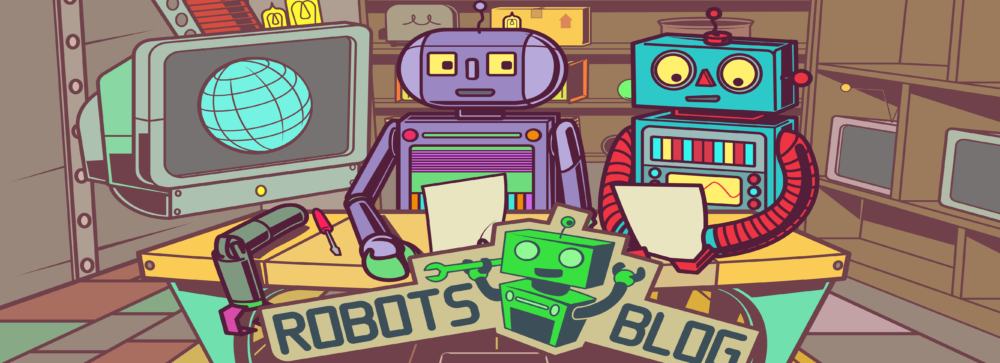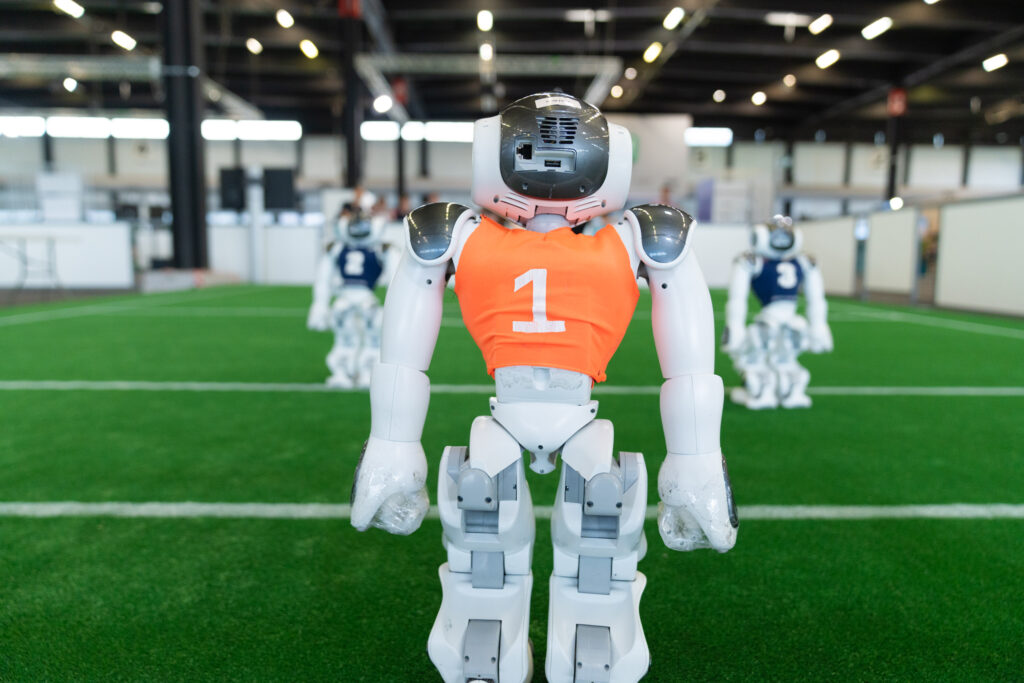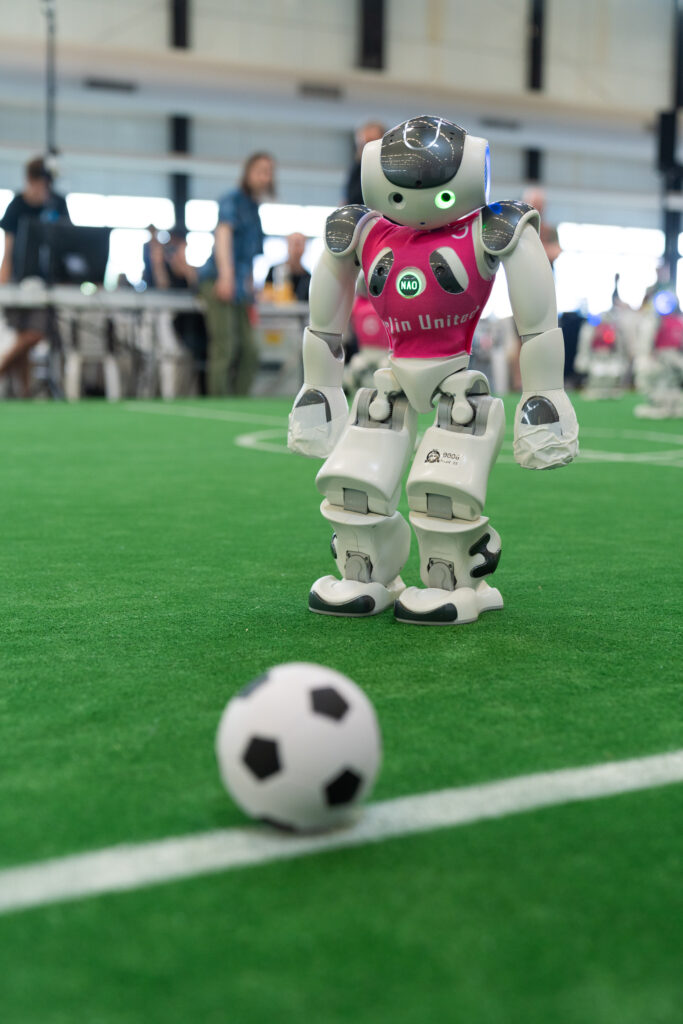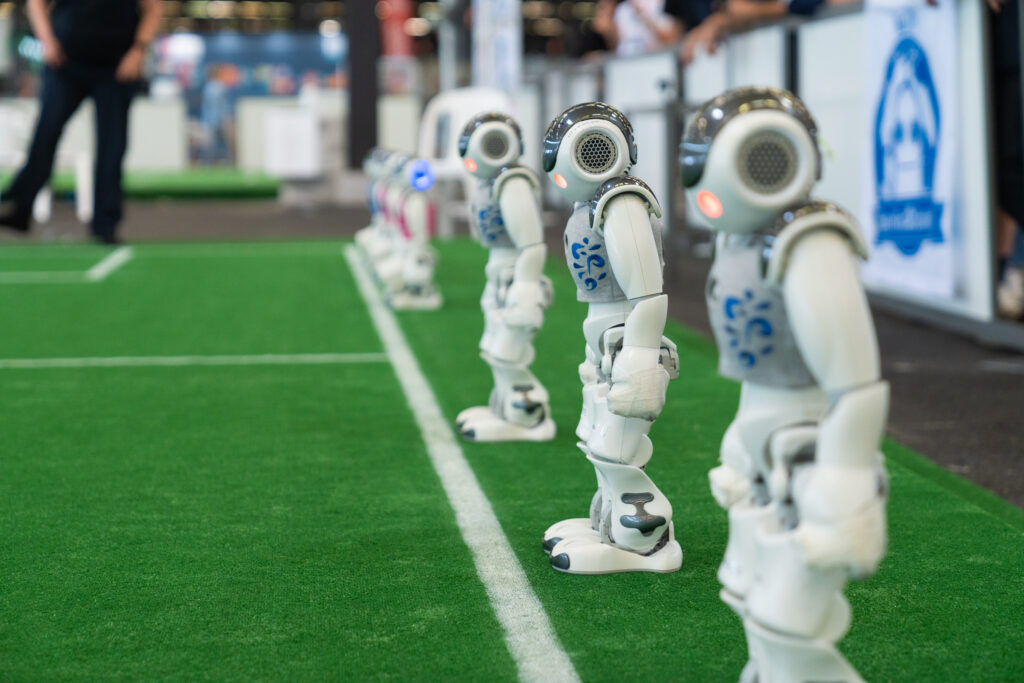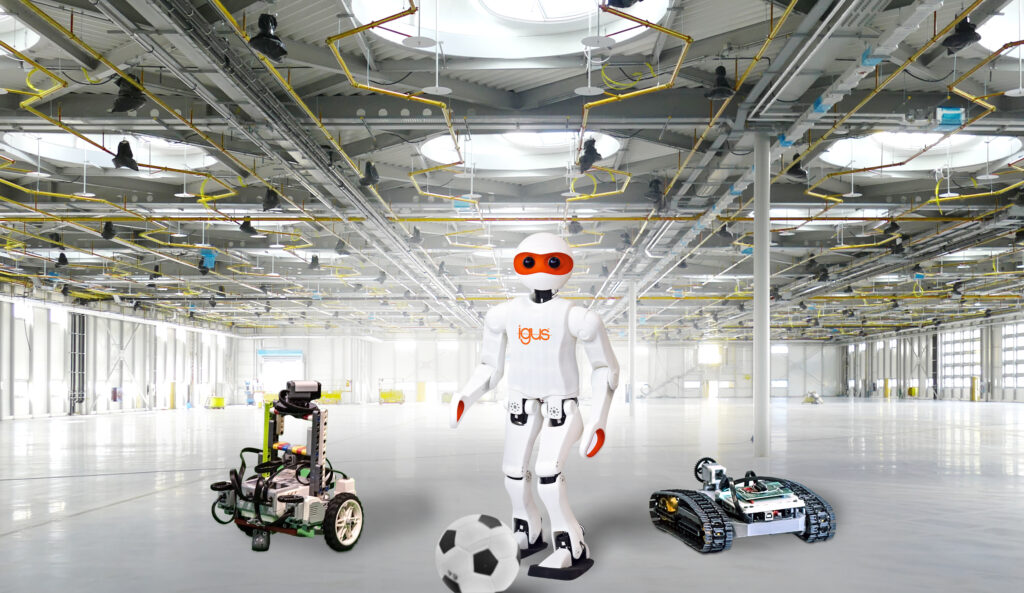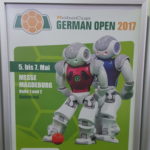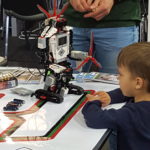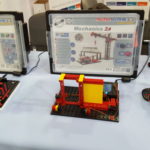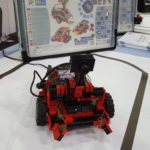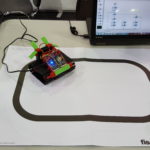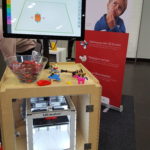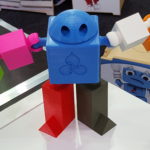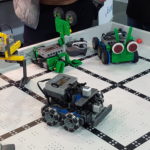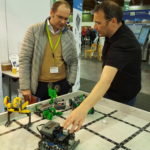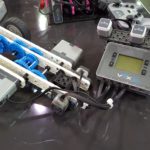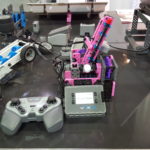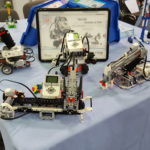“We can look back to a very successful RoboCup,” says Professor Gerhard Kraetzschmar, General Chair of RoboCup 2016. “The competitions have demonstrated once more the enormous growth taking place in the robotics sector. And Leipzig and Leipziger Messe proved themselves to be the perfect venue for RoboCup 2016.” Markus Geisenberger, Managing Director of Leipziger Messe, adds: “This was a wonderful RoboCup 2016. Participants from all over the world enjoyed their stay in the trade fair city of Leipzig. And there was something else: RoboCup has shown us that working together on an idea gives rise to a celebration among friends. I would like to thank all supporters who contributed to this successful event.”
These are the winners of RoboCup 2016
A total of 3,500 participants from more than 45 countries and regions came to RoboCup 2016. With them came more than 1,200 robots that competed in the disciplines Soccer, Home, Rescue and Industrial, and in the Junior leagues. The participants and their autonomous robots were fired up from the first to the last minute, and cheered each other on. The following teams won their respective competitions:
RoboCup Major: Soccer
- Standard Platform League: B-Human, Universität Bremen, Bremen
- Small Size League: MRL, Islamic Azad University of Qazvin, Qazvin
- Middle Size League: Final: Tech United Eindhoven, Eindhoven University of Technology, Eindhoven
- Humonoid Kid Size: Rhoban Football Club, University of Bordeaux 1, Talence
- Humanoid Teen Size: NimbRo TeenSize, Rheinische Friedrich-Wilhelms-Universität Bonn, Bonn
- Humanoid Adult Size: Baset Adult-Size, Baset Pazhuh Tehran Co., Tehran
- Simulation 2D: Gliders2016, University of Sydney, Sydney
- Simulation 3D: UT Austin Villa, University of Texas at Austin, Austin
RoboCup Major: Rescue
- Rescue Robot League: iRAP ROBOT, King Mongkut’s University of Technology North Bangkok, Bangkok
- Rescue Simulation Agent: MRL, Islamic Azad University of Qazvin, Qazvin
- Rescue Simulation Virtual Robot: Yıldız, Yıldız Teknik Üniversitesi, Istanbul
RoboCup Major: Home
- RoboCup@Home: ToBI, Universität Bielefeld, Bielefeld
RoboCup Major: Industrial
- RoboCup@Work: LUHBots, Leibniz Universität Hannover, Hanover
- RoboCup Logistics: Carologistics, FH Aachen, Aachen
Leagues continue to progress: Outdoor-Challenge, RoboCup Industrial, Referee Software
RoboCup is supported by a global community of tens of thousands of members. Their vision: In 2050, a team of autonomous robots wants to play against and beat the reigning FIFA World Champion. Even if this goal still seems visionary at present, the various leagues again registered numerous successes this year, confirming the steady progress of this technology.
Several leagues took up the challenge of having competitions held under outdoor conditions. In the Soccer Standard Platform, a separate competition was successfully held on artificial turf under wildly fluctuating natural lighting conditions. Similarly, Middle Size Soccer also successfully implemented a Technical Challenge under these difficult conditions. Two other innovations created a lot of excitement due to accordingly increased realism. Difficulties and progress in the Soccer category: The Humanoid League used artificial turf and real soccer balls. Three types of automated referee software were used in Small Size Soccer for the first time. They successfully refereed soccer games involving 22 players.
A competition under outdoor conditions was also implemented in the Rescue Robot League. Robots had to localize and remove victims in danger zones, and transport material to these zones. It was also the first time that flying robots took part in another technical evaluation as part of this league. In addition, humanoid robots mastered new tasks such as opening doors, closing valves and using tools.
Another exciting innovation was demonstrated in the RoboCup@Work and RoboCup Logistics Leagues. These were combined under RoboCup Industrial for the first time; a joint competition with mobile robots highlighted key developments for Industry 4.0.
Toyota and SoftBank Robotics will provide robots for future RoboCup@Home Standard Platform Leagues
Hundreds of trade visitors followed the company presentations of the RoboCup@Home Call on Friday. Two new Standard Platforms will be introduced in this discipline for RoboCup 2017. While the current competition allows for the free selection of hardware and software, specific robots will be specified for these leagues in the future. Six well-known technology companies presented their robots, which are well suited for this purpose, and their advantages. “All of the company presentations were impressive, leaving the RoboCup Federation with a difficult decision,” says Prof. Oskar von Stryk, Associated Chair of RoboCup 2016. “We are pleased to announce that Toyota and SoftBank Robotics have been selected by the RoboCup Federation for providing the robots for the RoboCup@Home Standard Platform Leagues starting next year.”
Team Delft wins Amazon Picking Challenge in both categories
This is the first time that the Amazon Picking Challenge was held concurrently with RoboCup. Sixteen teams from around the world took up the challenge of picking up and securely stowing twelve very different items from a shelf within a very short time period. The Delft team from the Netherlands put in an impressive performance on Friday and Saturday, and won both Stow and Pick categories.
Comprehensive scientific and technical program
Several high level scientific events closely co-located with RoboCup also invited visitors to exchange scientific ideas. Lively discussions on the current state of research took place at more than ten concurrent scientific and technical events, including the DGR Days, the 9th IFAC Symposium and the Flower Robotics Seminar. Tomorrow’s RoboCup Symposium closes the world championships of intelligent robots.
RoboCamp delivers a new generation of young scientists
The children and youths participating in RoboCamp fidgeted in their seats during the opening ceremony. The young scientists were very excited about the upcoming workshop, and could hardly wait for the starting signal. For three days, 160 children and youth and their parents worked on their first own robots as part of RoboCamp; the robots then faced off against each other in the first competitions. “The great amount of work done at RoboCamp demonstrates the fascination of children and youth with MINT issues,” says Markus Geisenberger. “I am very pleased that we were able to organize this workshop together with IHK zu Leipzig. I am sure that we have laid the foundation for one or more engineering careers.”
From robot friends and household assistants: Exhibition with an eye to the future
Hello. I can see you! – With these friendly words, robot Pepper from SoftBank Robotics caused quite a bit of excitement among many visitors. At this stand and at 60 more, market leaders such as Siemens, KUKA, Festo, Schenker, Tuxedo and noDNA presented fascinating exhibits. “This exhibition is the ideal complement for the competitions,” says Professor Gerhard Kraetzschmar. “It continues the game-based setting of the competitions with the application side, and turns the future vision of robotics into something tangible.” The future was also at the heart of the Recruiting exhibition. On 1 and 2 July, this event brought together potential employees and employers in the robotics industry at the Congress Center Leipzig.
RoboCup 2017 in Japan
The 21th RoboCup will be held in Nagoya, Japan, from 25 to 31 July 2017.
About RoboCup
RoboCup is the leading and most diverse competition for intelligent robots, and one of the world’s most important technology events in research and training. The World Cup of robots combines a variety of interdisciplinary problems from robotics, artificial intelligence, informatics, as well as electrical and mechanical engineering, among others. As the central discipline, robots play soccer in different leagues. Additional visionary application disciplines, such as intelligent robots as assistants for rescue missions, in households and in industrial production have been added during the last few years. The vision of the RoboCup Federation: That autonomous humanoid robots beat the reigning soccer world champion in 2050. In addition to the Global Sponsors of the RoboCup (Festo, Flower Robotics, MathWorks, SoftBank Robotics), the 2016 world championships are also supported by Siemens (Gold Sponsor), Amazon Robotics, Festo, KUKA (Silver Sponsors), Schenker, TUXEDO Computers (Hardware Partners), HARTING, Arbeitgeberverband Gesamtmetall / think ING, S&P Sahlmann (Bronze Sponsors), DHL (Logistics Partner) and Autoverwertung Freund, arvato, Donaubauer, Flughafen Leipzig/Halle, GiSA, Metropolregion Mitteldeutschland, Micro-Epsilon and regiocom (Friends).

